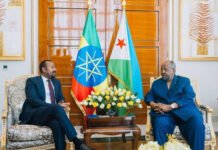GENEVA, (HAN) — The United Nations Human Rights Council (UNHRC) has adopted a landmark resolution allowing Somalia to assume full and independent management of its national human rights responsibilities.
The resolution, passed during the Council’s session in Geneva, marks a major step forward in Somalia’s efforts to strengthen its national human rights framework and take direct ownership of promoting and protecting human rights within the country.
According to UN officials, the decision comes after years of collaboration between the Somali government, the Office of the UN High Commissioner for Human Rights (OHCHR), and international partners. It recognizes Somalia’s progress in building national institutions capable of handling human rights obligations, including the establishment of the Somali National Human Rights Commission, ongoing judicial reforms, and steps toward accountability for violations.
The new arrangement transitions Somalia from international oversight toward national ownership of human rights monitoring and reporting. However, the UN Human Rights Council reaffirmed that it will continue to provide technical support and capacity-building to help Somalia implement international human rights standards and strengthen the rule of law.
Somalia’s Minister of Women and Human Rights Development, Khadija Mohamed Al-Makhzoumi welcomed the resolution, describing it as a “historic achievement” that reflects the government’s commitment to uphold and protect the dignity and rights of all Somali citizens.
Diplomatic representatives from African and European countries also praised the move, calling it a positive step toward sustainable peace, justice, and development in Somalia after decades of conflict and instability.
The resolution emphasizes Somalia’s obligation to prevent human rights abuses, protect vulnerable groups such as women, children, and internally displaced persons, and ensure accountability for all violations committed by state or non-state actors.
With this resolution, Somalia officially enters a new phase in its partnership with the United Nations — one centered on national leadership, accountability, and respect for human rights.




